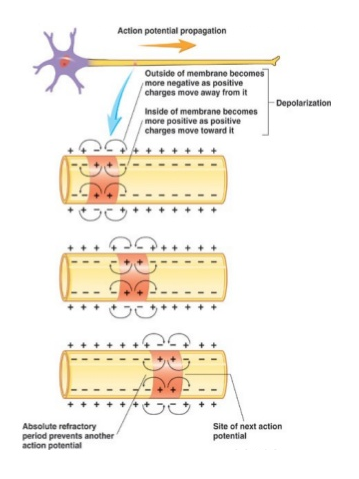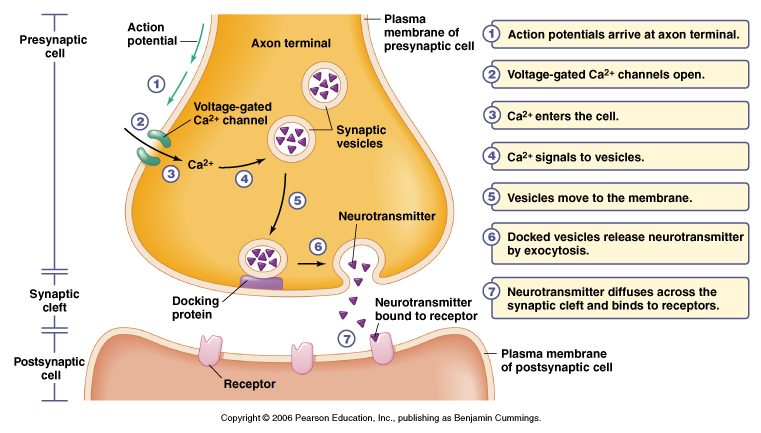Why is synapse transmission slower than nerve transmission?
1 Answer
Because in the nerves it is a electrical signal (quick) that has to be converted to a chemical signal (slower) at the synapse.
Explanation:
The signal that travels through nerves to a target (axons) is called an action potential. This is an electrical signal , because it is mediated by charged molecules (ions).
Receptors in the axons are sensitive to changes in this charge which propagates the signal. This is a very quick process.

Between nerve cells there is a gap called the synapse. Since the electrical signal can't simply cross that gap, it has to be converted to a chemical signal.
So at the synapse the electrical signal causes a series of reactions. This leads to the release of vesicles containing messenger molecules (neurotransmitters). These neurotransmitters have to cross the gap by diffusion which is relatively slow .
At the other side of the gap, the neurotransmitters have to bind to a specific receptor. This receptor converts the chemical signal back into an electrical signal.


